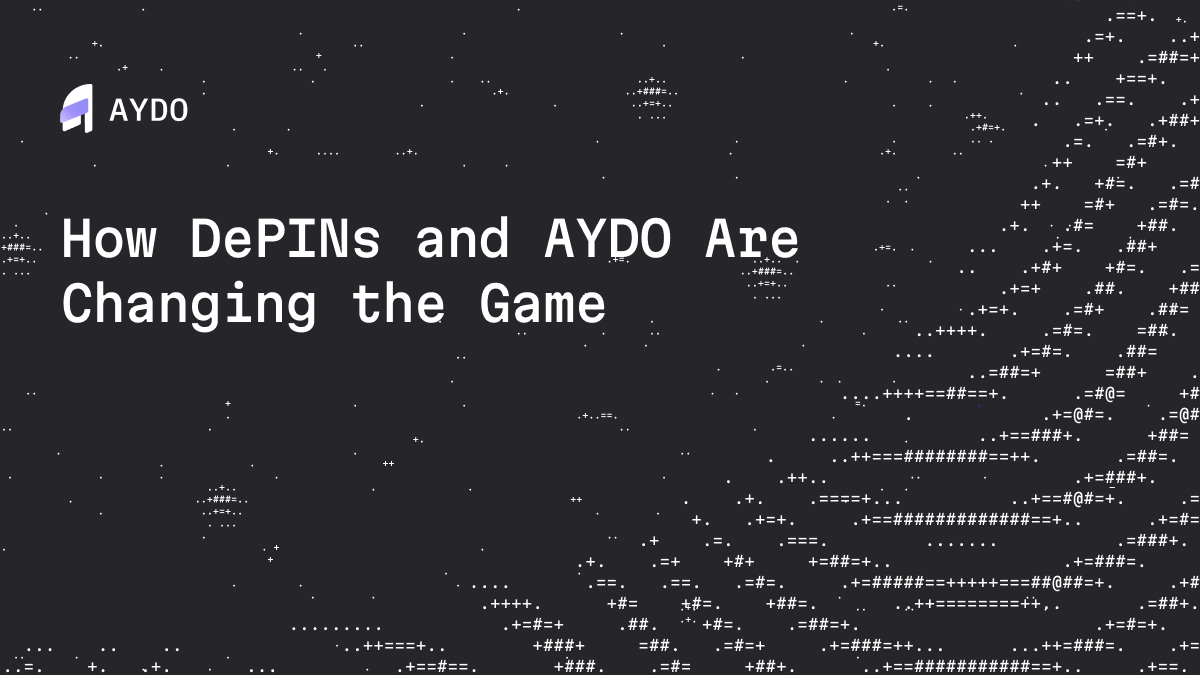How DePINs Are Changing the Game
 AYDO
AYDO
Decentralized physical infrastructure networks (DePINs) put control over physical systems into the hands of users—not big companies. Add IoT (Internet of Things) devices like sensors or drones, and you get a system that’s secure, transparent, and rewarding. Thanks to blockchain, users can share data and earn cryptocurrency.
AYDO bridges IoT and blockchain, making it easy for anyone to connect devices, stream data, and earn rewards. Here’s what we offer:
Use your GPS, smart meters, or cameras with AYDO Hub to link to thousands of platforms.
Decide where your data goes and how it’s used through the AYDO Dashboard.
Stream data and get rewarded while keeping your privacy intact.
DePINs are already creating real-world impact in industries like healthcare and travel. For example, telemedicine platforms let patients own and securely share their health data while doctors receive quick payments through smart contracts. Another example is a decentralized version of Airbnb, where bookings and reviews happen directly between users, powered by tokens instead of a central platform.
AYDO empowers everyday users to transform their devices into revenue streams while giving developers the tools and data they need to build cutting-edge AI and blockchain solutions.
Check out our onboarding articles on Mirror, where we guide you through setting up and maximizing your experience with AYDO.
Subscribe to my newsletter
Read articles from AYDO directly inside your inbox. Subscribe to the newsletter, and don't miss out.
Written by

AYDO
AYDO
The project's mission is to bring DePIN to mass adoption by making it economically viable, through lowering costs and facilitating easier access to data buyers. AYDO solves a critical problem: currently, DePIN projects require users to purchase expensive branded hardware that takes a long to ship and only works in isolated ecosystems. AYDO's solution allows users to connect over 7,000 third-party IoT devices and sensors to supported DePIN projects, enabling users to save 5-20 times on hardware costs without being locked into a single ecosystem.